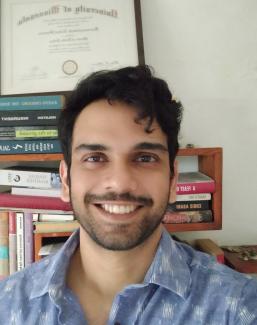
PhD Graduate
Year Admitted
2017
Year Graduated
2022
Research Areas
Organization studies and Public Management; Knowledge networks and capacity building; Local Governance; Energy; Waste management; Environment and development; sustainable development in developing countries.
Faculty Advisor
Mark Buntaine and Matthew Potoski (Social Science Group)
Committee
Matthew Potoski, Stephen Barley
Dissertation Title & Abstract
Non-Financial Incentives for Pro-Social and Pro-Environmental Behaviour
My dissertation examines how non-financial incentives can promote pro-social and pro-environmental behaviours through three projects based in India. In the first project, I test the relationship between pro-social motivation, monitoring, and preference alignment between principals and agents on agent performance in a multi-task environment. In the second project, I examine gaming behaviour in a government-to-government ranking programme for waste management in India. Specifically, I test for the motivations behind target-shifting by the principal and over-reporting by agent governments. In the third project, I develop a framework for studying energy justice and democracy in the Global South. Using this framework, I study the extent to which elements of energy justice and democracy are included in Indian solar energy policy.
The first project shows that pro-social motivation is an important predictor of performance, especially in public sector organisations. It also shows that motivated employees are likely to perform better when they have a high degree of agency in determining their task environment. The second project shows that government-to-government performance management is highly prone to distortions. Performance management in the public sector can be improved through development-focused interventions as compared to selection-focused performance management such as ranking programmes. The third project demonstrates that Indian solar energy policy has so far missed an opportunity for pursuing a just and democratic energy system transition made possible by solar energy technology.
Education
Masters in Public Policy (MPP), University of Minnesota